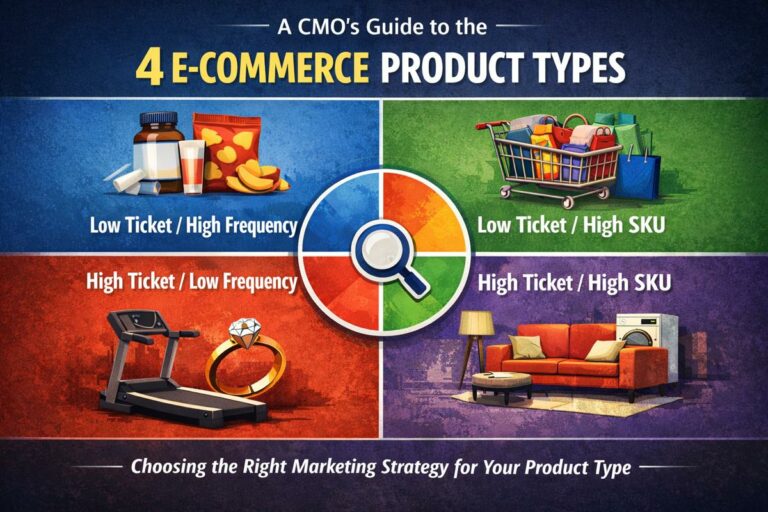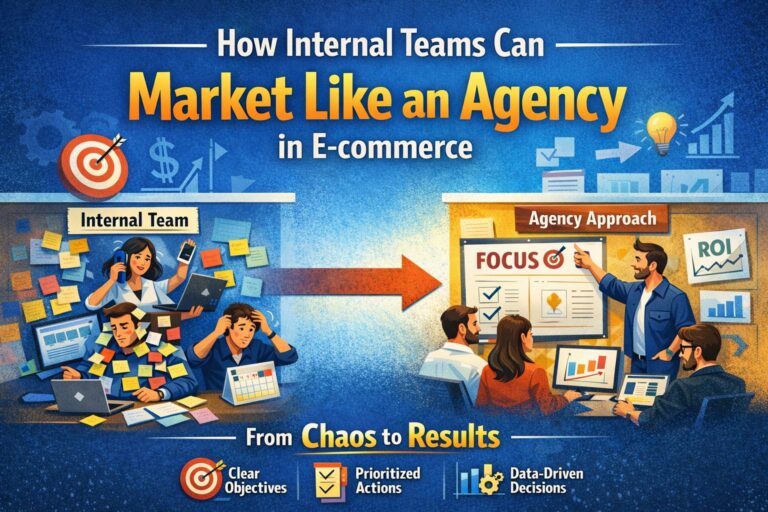Courtesy AI, more searches than ever end without clicks on any result.
So, is SEO worth it? Will it even exist in 5 years?
Let’s break it down with real data
By the end of this DigitalPosition guide, you’ll have clear insight into whether SEO is still effective today, how much it really costs, its longevity and future prospects, and the best alternatives for your business.
Just want the short answer?
Is it still worth paying for SEO in 2024?
As of Dec 2023, data show that SEO offers an average 550% return on investment (ROI), surpassing the average ROI for search ads (the most common alternative) of 200%. So, SEO is still worth it for businesses in sectors with adequate search volume and without excessive competition.
That said, there are a few nuances to consider before you run out to hire someone to get your business to the top of Google.
Firstly, businesses disagree on how much search volume is enough and how much competition is too much. Secondly, the time it takes for SEO to pay off, and the minimum investment needed for meaningful returns, can be significantly different compared to other options.
In other words, there isn’t a one-size-fits all answer to whether SEO is worth it. Even for two businesses in the same industry, selling the same things to the same consumers, the calculus can be different based on each business’s constraints and priorities.
Fortunately, there is a simple framework you can use to figure out whether SEO makes sense for your business.
Before we dive into that, let’s ensure that we’re on the same page on what exactly we mean by “SEO.”
If you’re already clear on the difference between organic listings and sponsored ads — and the critical implications on cost and “worth” that each choice poses for your business — skip ahead.
How ranking and search results work (and how it affects cost)
When it comes to appearing on search engines like Google, there are two distinct paths a website can take. The table below summarizes the key differences between the two.
| Aspect | SEO (Search Engine Optimization) | SEM (Search Engine Marketing) |
|---|---|---|
| Visibility | Appears in organic search results. | Appears in designated ad sections, marked as ‘Ad’. |
| Cost Structure | Costs include the time, effort, expertise, and tools required to win over competitors and rank prominently in organic results. No direct payment to search engines for clicks or visibility. | Costs include paying the search engine for each click received from sponsored ads, as well as hiring someone (externally or in-house) to manage the strategy, execution, and complexity of SEM. |
| Method | Involves optimizing website content, structure, and technical aspects. | Involves bidding in an auction for ad placement and keywords. |
| Longevity | Organic listings typically last several months to several years once they are achieved. | Sponsored listings disappear the moment your ad budget runs out, or competitors outbid you. No residual value from search. |
| Best For | Building long-term visibility and brand presence; diversifying marketing channels, and reducing paid marketing costs. | Immediate visibility and traffic. Sometimes the only viable option for new sites in high-competition SEO niches. |
Here’s a closer look at each of these paths.
1. Search Engine Marketing (SEM)
This method is NOT included under ambit of “SEO.” It involves paying Google to show a link to your site on their search results pages, when users search for certain terms or “keywords”.
These types of paid links are commonly called sponsored results, search ads, or pay-per-click (PPC) ads.
Google determines which website gets featured in these sponsored positions based on who is willing to pay the most money. Ads are auctioned based on the highest “cost per click” (CPC) that businesses are willing to pay for a search term.
Although this is NOT the same as SEO, there are unfortunately many unscrupulous, self-professed “SEO” providers who claim to help businesses “rank” in Google search results, while in reality, they simply bid for sponsored listings on some keywords.
While SEM can be a powerful marketing tool, it distinct from SEO, as explained below.
2. Search Engine Optimization (SEO)
Contrasting with SEM, SEO does not involve paying Google — or any search engine — for a place in the search results or for each click you get from those placements.
Instead, it focuses on enhancing your website’s visibility in “organic” search results. These results appear due to their relevance to the search query, and Google’s assessment of the site’s authority on the subject.
As opposed to PPC ads, where visibility is determined by who pays the most, prominence in organic search results is based on which page best matches the standards of a secret formula used by each search engine — such as the famous and mysterious Google algorithm that includes more than 200 parameters or “ranking factors”.
In other words, you can’t pay Google to be featured in organic search results.
That said, there is still a cost associated with ranking prominently in organic search results, as it involves optimizing your website’s content, structure, as well as the number and quality of links to your site from other sites.
Doing all this — and doing it well — requires considerable time, effort, skill, and knowhow. So, whether you choose to DIY your SEO, hire an in-house SEO specialist, or outsource it to someone, there’s always a cost to it.
Which begs the obvious question:
How much does SEO cost?
In 2024, small businesses in the US spend $500 — $5,000/month on SEO service providers. Larger businesses have SEO budgets of $30K — $50K/month or higher. Salaries for SEO roles range from $2.5K to $9.5K/month. An in-house SEO team of 3 costs an average of $11.5K/month in salaries.
For details on how in-house and outsourced SEO compare, check out our detailed guide that explores the pros and cons of each option.
The approximate ranges above are useful, but they don’t tell you exactly how much your business’s SEO campaign is going to cost.
Here’s how to figure that out.
Determining SEO cost: how to set your SEO budget
SEO services are typically priced based on effort (like writing articles or doing keyword research), rather than outcomes (like achieving a specific ranking or volume of organic traffic).
This is because of how SEO works: search engine algorithms, with their hundreds of factors influencing search results, often change several times a year. Also, businesses are constantly trying to outdo their competitors in organic search results.
In other words, SEO is not a one-time thing, like building a house or buying a car.
Rather, it’s an ongoing effort, like managing a farm. Your job isn’t done once you plant the seeds; you still have to water the plants, use the right fertilizers, fight against weeds and pests, manage soil conditions, and so on.
All of this means that businesses typically treat SEO as an ongoing monthly investment, not a one-time expense.
And the monthly cost of SEO depends on two key factors: your SEO goals (like how many pages you want to rank, or how much organic traffic you need), and the level of competition in your industry (how many other people are trying to rank for the same search terms).
The table below offers a more detailed breakdown of all the factors affecting SEO cost.
| Factor | Description | Impact on Cost |
|---|---|---|
| Website Size | Larger websites with more pages need more SEO work. | Larger sites incur higher costs. |
| Competition Level | Highly competitive industries need more intensive SEO efforts to stand out. | Higher competition increases costs. |
| Current Website Authority | Authoritative websites, with quality content, thousands or millions of backlinks, and years of consistent performance, win ranks more easily compared to less established sites. | Lower site authority increases costs. |
| Business Locations | Businesses with more locations typically require more extensive SEO effort compared to smaller or one-location businesses. | Number of locations increases costs. |
| Local vs. Regional / Global Focus | Local SEO is generally less expensive than national or international SEO. | Wider focus raises costs. |
| Timeline | Ambitious goals, like ranking high-traffic keywords in weeks rather than months or years, cost more. | Faster, more aggressive timelines cost more. |
Is SEO a viable marketing tactic for your business?
If you read the previous sections and used the calculator, by now you have a pretty good idea of how much SEO costs.
The question is, does it make sense for your business?
Here’s a simple go versus no-go framework to decide whether SEO makes sense for your business.
Go:
- There are enough people searching for your products/services
- The competition for your keywords is not extreme, making ranking achievable
- Your business has the time and budget for gradual results
No-go:
- Your audience does not use internet search to buy or research your products/services
- Extremely high competition makes ranking impractical
- Immediate ROI is a priority, and resources are limited
Wondering how to figure out whether there are enough people searching for the products/services your business offers?
There’s no easy answer without diving into the technicalities of keyword research.
Given that SEO is generally a viable marketing tactic for most types of businesses, it’s simpler to explore the circumstances where it doesn’t make sense — that’s a much smaller list.
So…
When is SEO a waste of time?
Here are a few scenarios where SEO might NOT be viable:
- Ultra-niche products or services: Businesses offering highly specialized products or services that have a very small target market and low search volume.
- Temporary or seasonal ventures: Event-specific services or seasonal businesses where the time lag in SEO effectiveness doesn’t align with their business model.
- Highly saturated niches: Niches where core keywords are heavily targeted by larger businesses. Dominant online giants and larger companies in adjacent industries make it hard for smaller competitors to rank.
Examples of businesses for which SEO may not be a good fit
High-end art galleries: Galleries that deal with exclusive art pieces, often relying on private viewings and direct client relationships rather than online traffic.
Pop-up event organizers: Businesses that organize short-term events or pop-up experiences, where timing and local advertising play a larger role than long-term SEO.
Luxury yacht brokers: They often operate in a very exclusive market where purchases are driven by direct relationships and networking, not general online searches.
Independent authors: Authors looking to promote a new eBook might find PPC ads on platforms like Amazon more cost-effective to target specific readers than trying to rank organically in a highly competitive market.
Freelance interior decorators: An interior decorator might struggle with SEO due to competition from large furniture manufacturers who dominate keywords related to interior design, even if the latter do not offer personalized interior design services.
As you can see, aside from a small set of highly specific business models, SEO can make sense for most businesses.
But even if SEO is a viable option for your business, is it the best one?
SEO vs the alternatives: Is SEO still worth it in the age of AI?
How does SEO stack up against the alternatives when it comes to ROI on your marketing dollars?
Currently, businesses report returns ranging from $2.75 to $12.3 for every $1 spent on SEO, with the average being around $5.5.
SEM and social media ads are the two most common tactics that businesses use in place of or alongside SEO. These average $2 and $1.5 each, respectively, for every $1 spent.
| Method | ROI |
|---|---|
| SEO | 550% |
| SEM | 200% |
| Social Media Ads | 150% |
It’s worth pointing out that the timelines over which you recover your investment on SEO can be much longer and slower compared to other methods.

The graph above compares the cost and traffic for SEO versus PPC, based on real data from one of our clients.
As you can see, this business invested in SEO for about 15 months before their organic traffic really took off and they started seeing results for their SEO dollars.
PPC ads, on the other hand, delivered instant results, but the cost was also much higher and more volatile, as ad rates can fluctuate wildly in some industries.
Despite the long frontloading period, the effective cost-per-click for SEO traffic at the end of 2 years stands at $0.59, which is a 328-percent improvement over the average paid search CPC of $2.51.
Clearly, the data suggests that SEO is still worthwhile today.
But what about the future?
Will SEO still exist 5 years from now?
With the rise of AI-generated search results and zero-click searches, the search landscape is certainly changing, but it’s unlikely that SEO will disappear entirely. Here’s why:
1. Search engines will still exist
Regardless of how answers are delivered, the need to find information efficiently won’t disappear. Search engines will still be the primary gateway to that information, even if the results are increasingly personalized and AI-driven.
2. Local SEO and niche markets
Local businesses and niche markets will still rely on traditional SEO tactics to reach their target audience. Ranking well in local searches and for specific keywords will remain crucial for these segments.
3. Content still matters
High-quality content that answers user queries comprehensively and engagingly will still be necessary – AI bots need to constantly understand and assimilate new information, or else they quickly become outdated. Despite the rise of AI content tools and search engines, content that aligns with user intent will still be valuable.
Already, several influential publishers are blocking AI bots from their sites, and even more sites will likely follow suit. So it isn’t possible that all search queries will be fulfilled by AI-generated answers alone.
4. Paid ads are subject to supply-and-demand forces
Even if many businesses decide to switch entirely to PPC ads, that automatically drives up the demand and cost of paid advertising, effectively improving the relative cost efficiency of SEO.
Next steps
Don’t let SEO be the bottleneck that holds you back from business growth. Get ahead of the competition and leap to the top of Google, with expert SEO services.





no replies